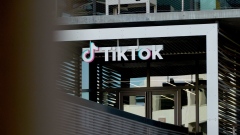Jun 9, 2024
Trudeau to call vote on contentious tax change this week
, Bloomberg News
Canaccord CEO on capital gains tax
Prime Minister Justin Trudeau’s government will call for a vote this week on a planned hike in the capital-gains tax inclusion rate, a measure that would raise billions in additional government revenue and has attracted the ire of Canada’s business community.
But groups including venture capitalists, startup founders and junior mining companies will have to wait longer to learn if their specific concerns about the policy have been addressed, according to government officials who spoke with Bloomberg. The legislation to implement the tax change isn’t ready yet.
The main components of the capital gains changes will be unveiled in a motion published in Parliament on Monday, Finance Minister Chrystia Freeland said in a speech in Toronto on Sunday. She said the motion will stick to the “broad outlines” that were announced in April, including an implementation date of June 25.
“Tomorrow we will introduce changes that will result in a small number of Canadians paying a little more in tax,” Freeland said. The plans to increase the capital-gains tax on companies and on individuals in years when they record gains of more than $250,000.
Currently, half of those gains are subject to corporate or personal income tax; that will rise to two-thirds. Exemptions and reductions are available for owners of certain small businesses, farms and fishing operations.
However, a handful of other programs that are related to the capital-gains change will need to be addressed in legislation. The details of that bill may still be weeks away, said officials who requested anonymity in order to speak on the government’s plans.
That includes the Canadian Entrepreneur’s Incentive announced in Freeland’s budget for this year, which proposed a reduced inclusion rate of 33.3 per cent on a maximum of $2 million in eligible capital gains for company founders, in certain cases. Freeland has indicated she’s open to tweaking the rules of that program, but that would be in the draft bill.
Junior miners will also have to wait for the bill to see if changes are coming to tax credits aimed at boosting the sector. The mining industry has warned the capital-gains hike significantly hurts the value of those credits, which are meant to help companies raise money to explore for critical minerals like copper, nickel and lithium.
With the House of Commons set to go on summer break around June 21, the tax bill will most likely be formally introduced in September. In the meantime, draft legislation may be published over the summer by the finance department, officials said. They stressed that all the core aspects of the capital gains hike will be included in Monday’s motion.
Overall, the capital gains tax hike has attracted widespread criticism from business groups, who argue it will hurt Canada’s ability to attract investment and worsen productivity woes.
Trudeau said last month that the tax change is about asking the wealthy to contribute more to society. His main opponent, Conservative Leader Pierre Poilievre, has not yet said how he would vote on the measure.
Freeland’s budget estimated the measure will raise almost $20 billion in new tax revenue over five years — though that figure rests on the assumption that some investors will rush to sell assets by June 24. That’s the last day to realize a gain at the current lower tax rate.










